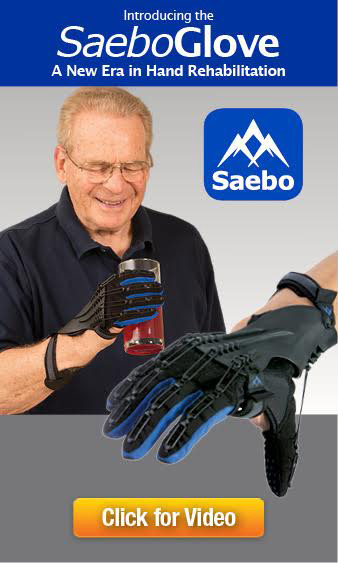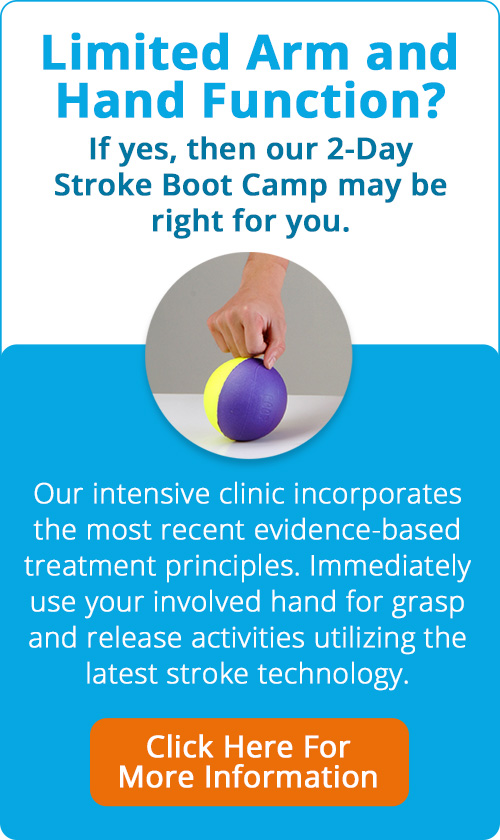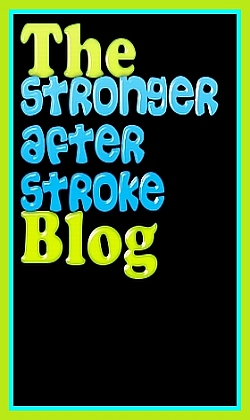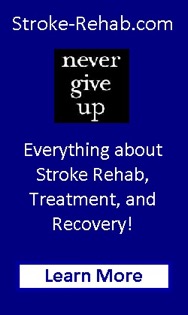Arm and Leg Bike
An Arm and Leg Bike is a stationary cycle designed to strengthen and condition the upper and lower body, as well as the cardiovascular system, by using the arms and/or legs.
Bathing Aids
Equipment that helps users become more independent with bathing.
Biofeedback
Biofeedback or electromyography (EMG) is a non-invasive technique used for measuring muscle electrical activity that occurs during muscle contraction and relaxation.
Body Weight Support
Body Weight Support uses a suspension system and a harness to support a percentage of the user’s body weight during standing, walking or exercise.
Cognitive-Communication Training
Cognitive-Communication Training consists of specialized hardware devices and/or software programs used in therapy or at home as a way to improve cognition and/or communication skills.
Dining Aids
Equipment that helps users become more independent with feeding and drinking.
Dressing Aids
Dressing aids help users become more independent with applying and removing clothing.
Edema Management
Edema is a medical term for swelling caused by excess fluid trapped in the body’s tissues (i.e., hand/foot). One of the common treatment techniques used to reduce edema is a compression garment. Examples of garments include gloves, elastic stockings, and ace wraps. Another common strategy to reduce fluid is through the use of electrical stimulation.
Electrical Stimulation
Electrical stimulation or neuromuscular electrical stimulation (NMES) is a technique used to elicit a muscle contraction using electrical impulses. Electrical current is then sent from the unit to the electrodes and delivered into the muscle causing a contraction.
EMG-Triggered Stimulation
EMG-Triggered Stimulation is based on the user’s voluntary movement, or intent to move. Electrodes, controlled by a unit, are placed on the skin over a specific area. Once the user attempts to contract his or her muscles and reaches the prescribed threshold, stimulation is triggered (delivered) to the same muscles. Various visual and auditory feedback options monitor the progress.
Exercise Aid
An Exercise Aid is a piece of equipment used during physical activity to improve strength and coordination of the body region targeted.
Foot Drop Brace
A Foot Drop Brace is a rigid or flexible support that offers dynamic or static assistance to the weakened foot so functional mobility and exercises can be possible.
Grip Aid
Grip Aid is a wrist or hand strap system designed to grasp, stabilize and hold items for individuals with poor hand function and strength.
Hand Function Splint
A Hand Function Splint is a rigid or flexible brace that offers dynamic or static assistance to the weakened hand so functional activities and exercises can be possible.
Lower Limb Contracture Splint
A Lower Limb Contracture Splint is a brace used to prevent or treat contractures. The goal of a contracture splint is to help keep the soft tissues (muscle and tendons) in the leg and foot stretched properly.
Lower Limb Non-Robot Assisted Brace
Lower Limb Non-Robot Assisted Brace consists of an electromechanical or mechanical device, designed for the leg or foot, that is used to assist users (through non-powered mobility) with exercise training, mobility and activities of daily living (ADL).
Lower Limb Robot Assisted Therapy
Lower Limb Robot Assisted Therapy consists of an electromechanical device, designed for the leg or foot, that is used to assist users (through powered mobility) with exercise training, mobility and activities of daily living (ADL).
Mirror Therapy
In Mirror Therapy, a mirror is placed beside the unaffected limb, blocking the view of the affected limb. This creates the illusion that both limbs are functioning properly. Damaged areas of the brain’s motor cortex may improve by viewing movements of intact, functioning limbs.
Mobile Arm Support
A Mobile Arm Support (MAS) is a gravity supported mechanical device mounted on wheelchairs, tables, or base frames. A MAS is used to support the weak arm to improve motor function and strength. In addition, the device allows patients with shoulder weakness to perform self care tasks such as feeding, hygiene, grooming, and writing.
Motorized Arm and Leg Bike
A Motorized Arm and Leg Bike is a motor-assisted cycle designed to strengthen and condition the upper body and lower body, as well as the cardiovascular system, by only using the arms and/or legs.
Shoulder Subluxation Sling
A Subluxation Sling is typically used on hemiparetic arms that are flaccid or exhibit minimal to no movement. They offer support, protection against injury and can prevent or reduce shoulder pain.
Stretching Aid
A Stretching Aid is a piece of equipment typically used to prevent stiffness as well as maintain or improve range of motion at the desired joint.
Stroke Recovery Books
Inspiring and educational books that provide excellent resources, tips and strategies for individuals afflicted by stroke
Tremor Aids
Adaptive equipment and therapeutic tools that assist with reducing or minimizing tremors.
Upper Limb Contracture Splint
A Upper Limb Contracture Splint is a brace used to prevent or treat contractures. The goal of a contracture splint is to help keep the soft tissues (muscle and tendons) in the arm and hand stretched properly.
Upper Limb Robot Assisted Therapy
Upper Limb Robot Assisted Therapy consists of an electromechanical device, designed for the arm or hand, that is used to assist users (through powered mobility) with exercise training and activities of daily living (ADL).
Vibration
Vibration is a therapeutic tool that assists with reducing pain, reducing spasticity, recovering from injuries and improving performance.
Virtual Reality/Exercise Games
Virtual Reality/Exercise Games consists of computer-based, interactive exercise games and activities that allow players to engage in entertaining tasks while being physically challenged. These games rely on technology that tracks body movements or reactions. Some advanced games allow users to set goals, grade and customize, receive instantaneous feedback, reinforce behaviors, and record and analyze results.
Visual Aid
A Visual Aid is an assistive device designed specifically to help people with vision loss or impairment.
Visual Motor Training
Visual Motor Training consists of coordinating visual skills together with gross-motor and/or fine-motor movement. It is the ability to integrate visual input with physical output. This is how individuals plan, execute and monitor functional tasks, such as turning a page, buttoning a shirt, or walking safely.







